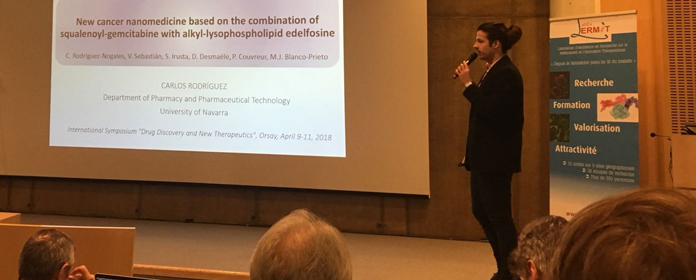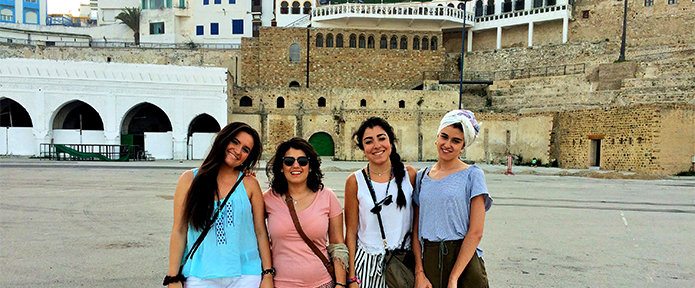20001207Seis farmacéuticos de la Universidad de Navarra participan en Perú en un proyecto de explotación de plantas medicinales
Six pharmacists from the University participate in Peru at project in the exploitation of medicinal plants.
University graduates gave economic and sanitary boost to the Andean region of Nor-Yauyos
Six pharmacists from the University of Navarra have participated in Peru in a project project to exploit medicinal plants for the economic and health benefits of the Andean region of Nor-Yauyos.
The department of Pharmacy and Pharmaceutical Technology of the School of Pharmacy of the University of Navarra proposed to a group of graduates to travel to Peru with the help of high school Rural Valle Grande de Cañete (Peru), the Spanish Agency for International Cooperation (AECI) and association ProPerú. The Government of Navarra and the Pamplona City Council also financed part of project.
The graduates are Nora Sasal (Pamplona), Javier Calvo (Rentería, Guipúzcoa), Manuel Allende (Zaragoza), Marta Fernández de Vega (León), Ignacio Gil (Logroño) and Íñigo Uriarte (Bilbao).
The initiative was based on the exploitation of medicinal plants as an economic and sanitary resource of the area. In 1997, high school Rural Valle Grande proposed to the farmers to use part of their orchards to grow aromatic plants, such as rosemary, thyme or mint. Until then, the native lands were only used for subsistence agriculture. Thus, by drying the aromatic plants in the traditional way and selling them to filtering companies, mint, lemon balm... were produced. In this way, family incomes were increased.
"The project -explains Manuel Allende- was so well received that there came a time when there was a large issue of dried plants, and they could not sell them. And that was the reason why we went there: since they could not sell the plant, they thought they could sell its essential oil, the chemical compound that gives it its aroma. This liquid is highly appreciated by the food, cosmetic and pharmaceutical industries.... In addition, it has more advantages: it is preserved for a long time and, being more expensive, the profit is higher".
As Nora Sasal adds, her work consisted of forming a small quality control of these essential oils, in a laboratory of Cañete donated by the University of Navarra. "At the same time," she continues, "it constituted a whole quality indicator; that is, thanks to it we identified which class strains were the best to be cultivated. This other area of work is called 'Crop Optimization'".
The efficacy of traditional medicineAlso from the high school Rural Valle Grande a study on traditional medicine was started, to check how the inhabitants of Nor-Yauyos use plants as a remedy against their diseases: "We supported this study: we designed the survey among the six and interviewed people about healing with wild plants: how they used them, what for? ", Nora qualifies.
In this regard, Manuel notes that "when these people get sick, their first resource is traditional medicine, and that can be as effective as a medicine. According to a study we did, these plants cured in most cases the diseases for which they were intended, and this is something that we do not understand here".
In Peru, they collaborated directly with two engineers from Cañete. One of them continues with this quality control initiative. Manuel explains: "We didn't start anything there from scratch. The project started before we arrived, and we have continued it. We have lent them a hand where we could: we created the laboratory de Farmacognosia and we have given a strong push to project".
And now they are already tasting the honeys with their particular success: "This first work of research was presented by the high school Rural Valle Grande to the I Iberoamerican congress of Medicinal Plants, where our discussion paper was accepted. It is gratifying to see how the academic community Iberoamerican recognizes our work".


